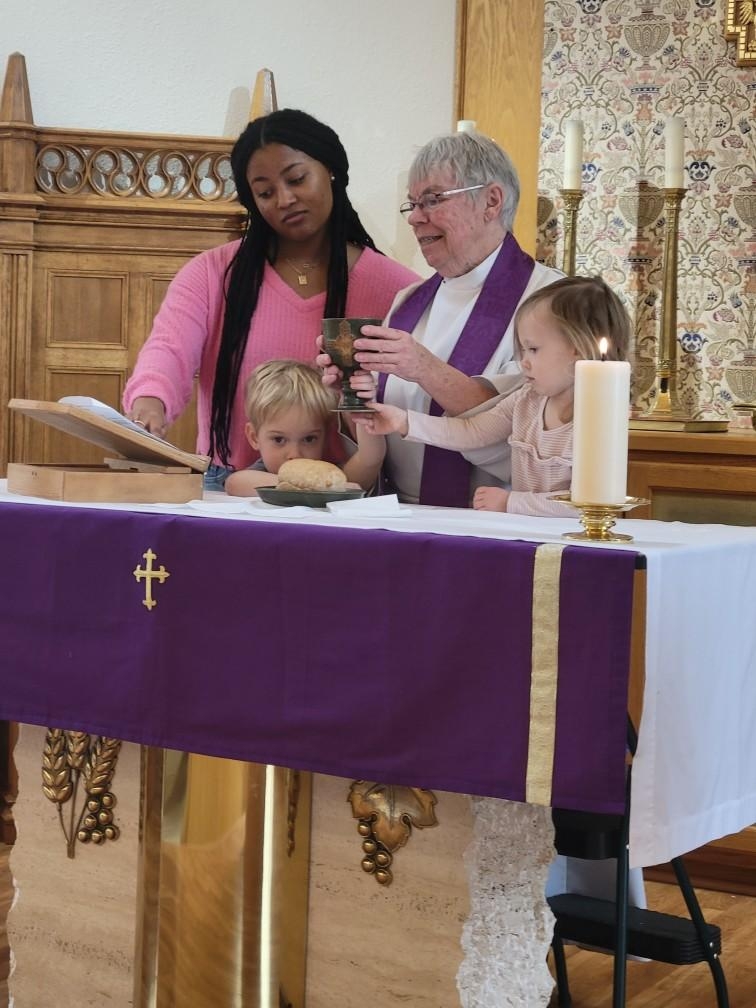Cathy Cox
Annual Meeting address – February 5, 2023
Paula Shepard will lead the actual annual meting after Church today, and because I am moving towards retirement in seven months, I do not plan to be part of the meetings going forward.
This is work you need to do, unencumbered by my opinions, perspectives or preferences.
But right now I want to reflect a little on the past year and ask some broader questions than those you will be discussing later today.
A national survey of churches all across the country, both conservative and liberal, revealed something that to me, at least, was unsurprising. COVID has changed the face of worship – perhaps for a long time.
People feel less inclination to get up and dressed and out when they can follow along online. And so across the board, in-person attendance is down.
Second, after a couple of years of that, even online attendance has decreased. It has become a habit for many to skip it altogether, virtual or in person.
Third, young people are leaving the church in record numbers. And this is related to number 4:
Fourth, the national political situation has so polarized people and the right wing of the political spectrum as so used religion, especially Christianity, as a weapon against all forms of social progress, and even social concerns like healthcare and education, that Christianity is viewed with suspicion, and rejected out of hand.
Fifth, there is no longer any social advantage to being a member of the Church. And this is related to number 6.
Sixth, all organizations, religious and otherwise, struggle with finding volunteers. “Joining” any organization is less important than it once was, people find other ways to connect and less interest in participating in social organizations.
Now you may not have seen much of this in Bolivar yet. But we will.
And al of that leads to a really large and important question: Not will the church have a future, because, of course, it will. What it looks like, how it functions, will change, as it has again and again throughout history –
But this question: Will it matter to anybody even if it does? Will it be seen for another few generations at least, as mostly irrelevant?
You may know that in England, and throughout Europe, Christianity is already a minority religion.
And that is true of conservative and liberal Protestant and Catholic churches.
It is seen as a relic of the past. So is Christian doctrine –
It is not viewed as having anything of importance to say, or to offer.
Church buildings have been sold and used as museums, businesses and even homes.
There are many reasons for this, but my point is simply this: If the future is to have an Episcopal Church in our area, we will have to have the hard conversations Paula is initiating.
Why should St Alban’s exist?
What does this community need from us that it does not have already?
Bolivar is blessed to have some excellent cross-denominational and non-denominational services and ministries – We can support those, and should. But it is unwise to attempt to duplicate or reinvent them.
However, many of them are underused – including the Warming Center.
People have said they would rather sleep in their cars on the coldest nights than go into a “Christian” facility.
We initiated a support group for anyone with mental illness, facilitated by Lori Cohen, which is definitely needed in our community, but it failed – at least partly because of the “faith-based” component that so many people fear right now.
I want you to think hard about this question going forward.
I mentioned in the newsletter a couple of weeks ago that our Prayer Book made an egregious error, misquoting last week’s Old Testament admonition to “DO Justice and love mercy” –
It was changed to “love justice and DO mercy.”
Now I suspect that was accidental – not deliberate.
But it has certainly reflected the preference of the whole Church in the US to pull people out of the river, so to speak, rather than going upstream to see why they are falling in.
That work is seen as political, rather than religious – and we have come to believe that ourselves – but in fact, the Bible is full of what we might see as political talk – beginning with the declaration that Jesus alone is Lord – and not any emperor, president or party.
And that has made it hard for us to engage injustice.
The several week series we did in the fall that included Biblical and theological conversations about women‘s roles, abortion and adoption, gay and lesbian inclusion, was possibly the most useful things we have done for a community where those topics are simply taboo or where too-easy answers (negative ones) were considered necessary and right.
We made those available online and they are still being viewed.
That is an example – not a prescription, by the way – There are many ways to do this work.
That was one – but there are others: What about the tree planting and prairie restoration projects? Who should be invited to engage those with us? Why do we believe they matter? How do we explain those as part of a biblical call to care for our planet?
As you walk into the future, think about what also we might do AND BECOME – that is faithful to scripture, that reflects honest scholarship, that speaks to contemporary need, and that arises from a kind of worship that subverts our natural selfishness.

No responses yet